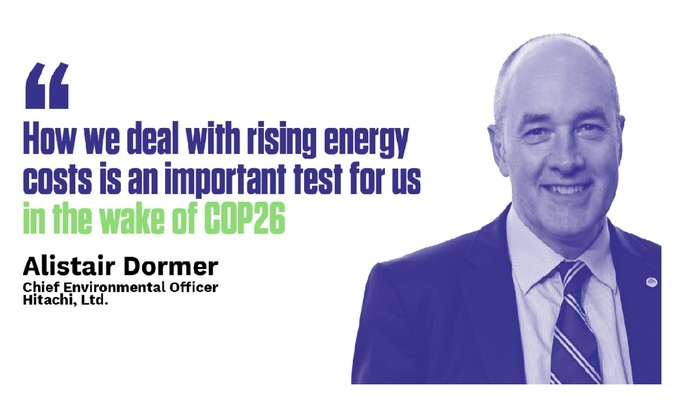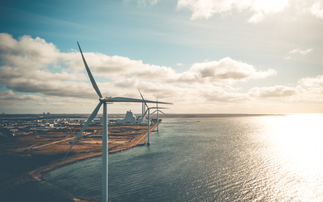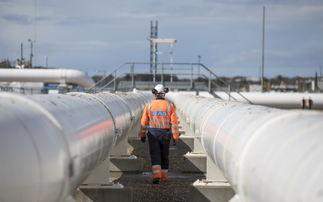
Partner Insight: The UK cannot allow short-term challenges, cost or otherwise, to subdue investment in renewables, according to Hitachi's Alistair Dormer
Let's be honest, no one wants to see screaming headlines around rising energy costs, particularly at this time of year. Behind this is real hardship for businesses and people. However, as we seek to accelerate the momentum generated by COP26, this current challenge is a clear reminder that policy makers need to double down on net zero in 2022.
For me, increased energy costs should act as a signal to governments to invest further and quicker in renewable energy because, over time, renewable energy becomes more affordable. We've already seen that new wind and solar projects will be cheaper than coal and in the calendar year 2020 almost two-thirds of renewable energy schemes built globally were expected to undercut coal costs. As more and more volume is installed, these costs will be reduced even further and in early 2022, we have a golden opportunity to take a long term view for the good of the planet.
Of course, we all understand the short-term cyclical nature of politics but there is so much more at stake here and as industry we should be encouraging governments to continue long term investments and complete the energy transition as quickly as possible. In order to do this, we need to give more people more access to more energy - it's a fact that hundreds of millions of people in the world don't have access to energy and progress to address this has been hampered by the global pandemic. Renewable energy has a huge part to play in the solution to this major global challenge.
It's clear that our lives will be increasingly powered by electricity so we're going to need more of it, and specifically, more green electricity so we cannot allow short-term challenges, cost or otherwise, to subdue our investment in renewables. Governments need to ensure that energy is affordable because energy poverty is absolutely a quality of life and sustainability issue. The time to invest in renewable energy is now.
This goes beyond politics - it's about the investment in holding the 1.5 degree global warming limit as adopted at the Paris Agreement and reinforced at COP26. For our part, we believe that as a social innovation business in 2022, our role is to be a climate change innovation business. That means harnessing our expertise and experience to tackle climate change. We want to help the business community - and others - better understand how to create climate change solutions and recognise the importance of partnerships to deliver this.
But business can't do this on its own which is why we need to work together with nations and governments to move beyond the pledges of COP26 and start the action plans for delivery - current energy costs should act as a springboard not a deterrent for increased momentum.
For me, it's also incumbent on the developed world to take a leadership position here but, ultimately, we will only achieve our collective ambitions if we include everyone. If we don't help the developing nations, then we're not going to solve this problem.
How we deal with rising energy costs is an important test for us in the wake of COP26 but I genuinely believe that if we treat each challenge as an opportunity, we have a great chance to deliver the future sustainable world that we all desire.
Alistair Dormer is chief environmental officer at Hitachi
Read more about sustainability at Hitachi
This article is sponsored by Hitachi.







